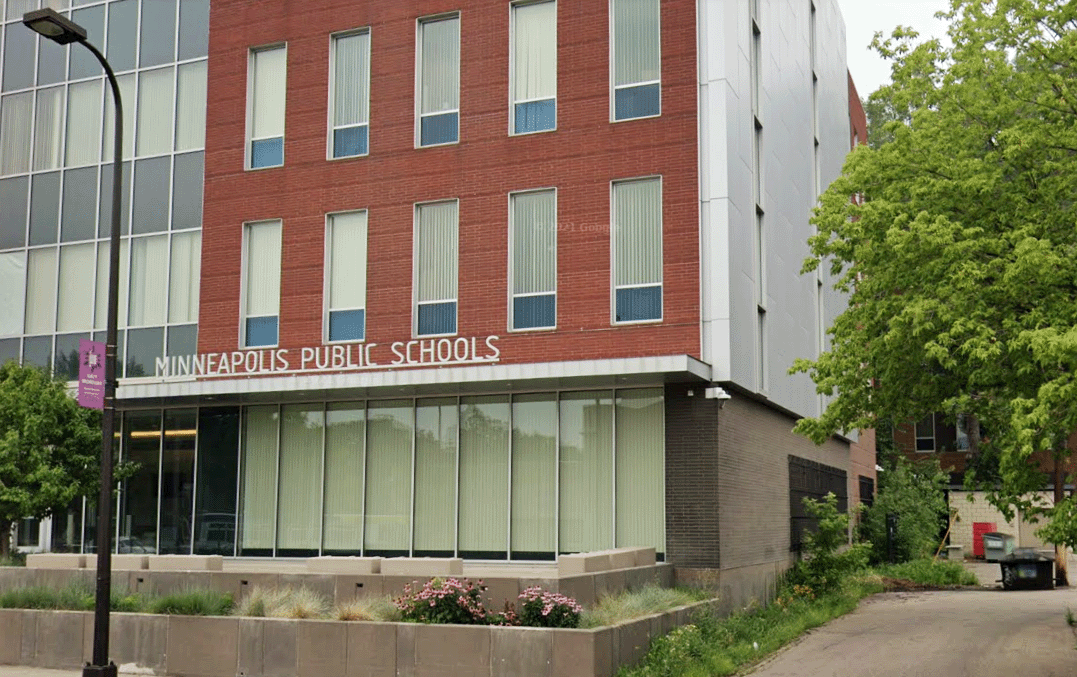By ELANA WARREN / Assistant Editor
Most Twin Cities public schools start the school year the day after Labor Day, which in 2021 was the first day of Rosh Hashana. Some schools moved the start of school so students and staff would not have to choose between the first day of school and observing Rosh Hashana, and now two of those school districts have taken it a step further.
The Hopkins and Minneapolis public schools will include the first day of Rosh Hashana, Yom Kippur and Eid as non-school days.
Hopkins began this school year in August 2021 to avoid starting on Rosh Hashana, but students and staff still had to choose between going to school and observing the holiday during the second week of school. The district policy accepts religious observances as excused absences; but choosing between one’s faith and one’s learning or work can be difficult.

Jewish and Muslim students proposed including their holidays on the Hopkins school calendar two years ago, and they can now claim victory. On Jan. 18, the Hopkins School Board unanimously voted to take the High Holy Days, Rosh Hashana (the first day, at least, which is more commonly celebrated) and Yom Kippur, as well as the Muslim holiday Eid al-Fitr, off the school calendar as school days.
Eid al-Fitr is one of two official Islamic holidays and marks the end of Ramadan, a monthlong fast. The other holiday, Eid al-Adha, will take place during summer, so it does not conflict with school.
A Hopkins parent brought concerns of losing school days and students falling behind to the school board, but Assistant Superintendent Nik Lightfoot said the new calendar does not impact the number of instructional hours.
Student representative Oscar Wolfe, a Jewish 11th grader, spoke at the Hopkins board meeting: “I think that this will be a huge step towards improving equity at Hopkins, and I really hope that we will be on the cutting edge of this and that other districts around us will pick this up. And hopefully it will spread further around the state and eventually the nation.”
Then the Minneapolis Public Schools followed suit.
As of its vote on Feb. 8, Minneapolis schools will also take the three days off from the school calendar. The board’s decision will set the calendar for the next three years. The change includes two non-instructional days for professional development and adds back days to the end of the school year.
Prior to approving the Minneapolis Public Schools calendar, the second of two calendar options, Minneapolis Board of Education members offered reasons for their support. Director Ira Jourdain spoke against option two, contending that the extra days in June are too hot for the school buildings without air conditioning and push back summer programming. The other six board members who spoke supported the second calendar.
“A few minutes ago we passed our strategic planning in which our goal [is for] a school climate … that is accommodating of our students regardless of their background and ethnicity and their religion as well,” Director Siad Ali said. “Option two clearly accommodates the students and the families and staff of Muslim and Jewish faith, and I believe I can say that if we choose this option two, that means we are starting [to put] our strategic planning in action within [a] few minutes, and I fully support option two.”
Kim Ellison, chair of the Minneapolis board, said the new calendar isn’t only about equity: Student attendance will improve, as students will not have to miss class for the designated holidays. But it is the inclusivity that is central for the Jewish and Muslim students, staff and families.
Minneapolis Board of Education Director Sharon El-Amin, who is Muslim, spoke of the excitement she felt at being included in the calendar.
At the Hopkins meeting, Oscar Wolfe shared that his friends in religious minorities were shocked and excited about the proposal. He said his grandparents didn’t expect to see this change within their lifetimes, and neither did his parents.
In a push for the new calendar Wolfe said, “The High Holy Days are supposed to be a time of reflection, time with family; but what they became was an annual reminder that we were different. That we were somehow not a part of what everybody else was a part of.”
He said having to make up missed school work isn’t too bad; the problem is the feeling of having missed out on those days of school and that the reason for missing out is that he is Jewish, that he is not a part of the majority. Wolfe said avoiding this exclusion could have a positive, long-term psychological impact on students. He added that the calendar can also help students who are in the religious majority get a better perspective about the other cultures that exist at Hopkins.
“I know that for most students at Hopkins this is a pretty minor change — it just means that they’ll get a few extra days off,” Wolfe said. “Not for those students whose holidays are for the first time being honored. It’s a really big deal.”
***
Elana Warren can be reached at: community [at] ajwnews [dot] com.
(American Jewish Word, March 2022)



















